Ex-employees of Telltale Games outlined their point of view on the reasons for the bankruptcy of the studio. App2Top.ru publishes material based on their interviews for the Gameinformer edition.
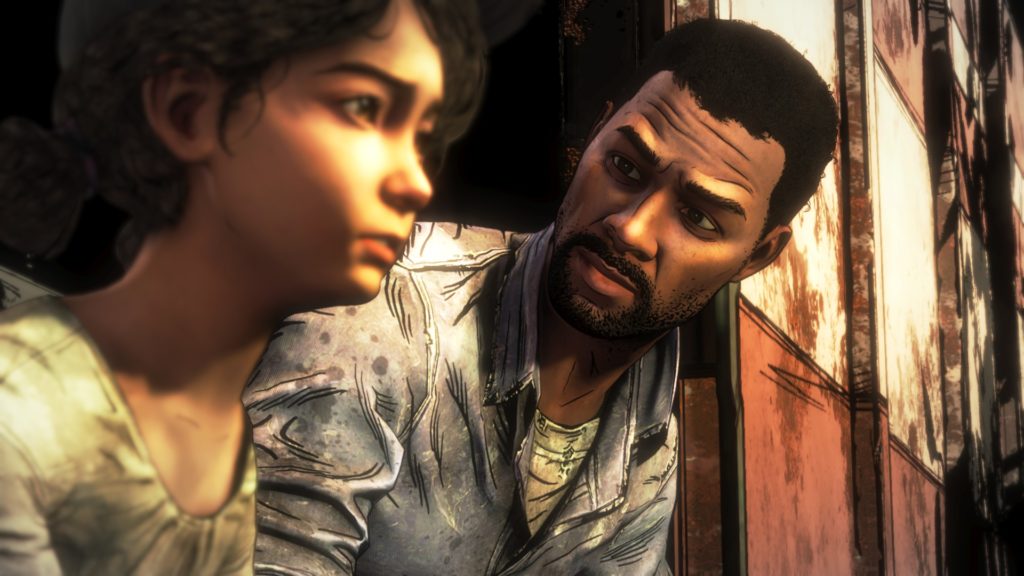
The Walking Dead: The Final Season
In Telltale games, characters often face difficult choices.
And every decision they make has a consequence. But real people who worked at Telltale also encountered similar things. They too often had to take risks. This tactic brought the studio success, but it also ruined it.
Choice 1. Stay put or go on an adventure
By 2004, LucasArts studio stopped creating adventure games. But three of her collaborators—Troy Molander, Kevin Bruner and Dan Connors—felt that the genre had yet to realize its full potential. They left the company and founded Telltale Games. That’s just no publisher wanted to publish their games. It almost ruined their plans.
We tried to attract regular publishers, but they weren't interested in the content we wanted to create. We had to do everything ourselves, gathering all our resources for this. There was simply no other way to make the games we had in mind.
Former employee of Telltale Games
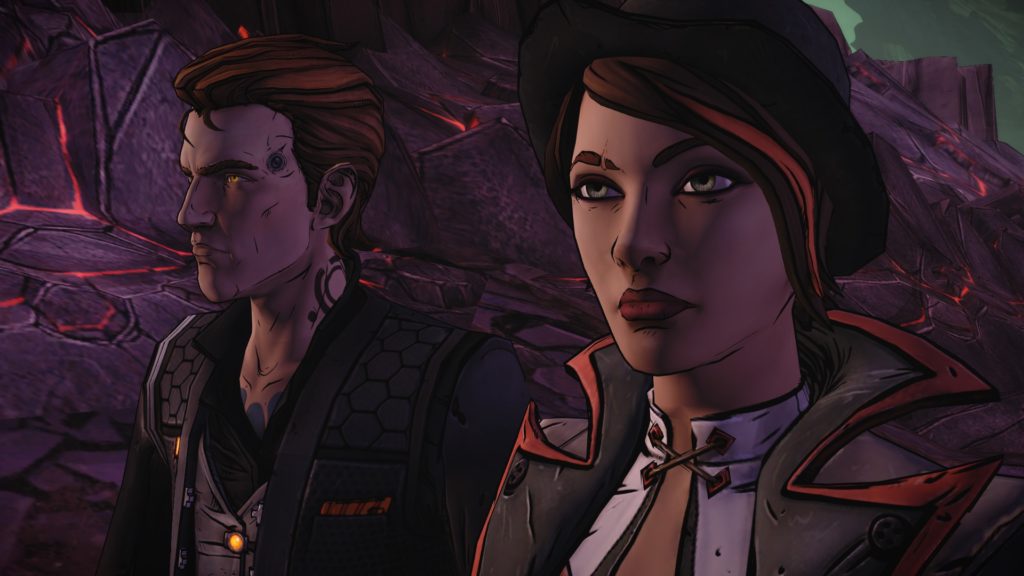
Tales from the Borderlands
The team decided to publish their projects independently and received several licenses for someone else’s IP.
These IP are embodied in the form of episodic video games. Being an indie studio, Telltale kept afloat for a while, but then it faced the next difficult choice.
Choice 2. Be a small indie studio or a big and mainstream company
In 2010, the studio received two large licenses — for “Jurassic Park” and “Back to the Future”. Now Telltale felt more confident and could implement her vision as she wanted. And in 2012, the whole world fell in love with the first season of The Walking Dead with its carefully prescribed characters, an extensive plot and a deep narrative.
The development of The Walking Dead was on the verge of failure. And the fact that the game shot up and became iconic was absolutely amazing.
Former employee of Telltale Games
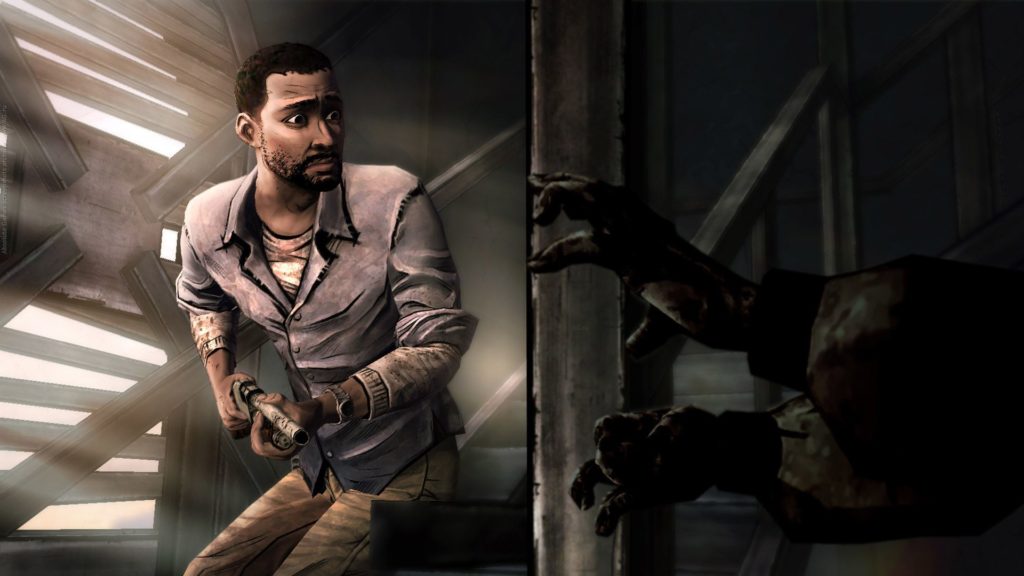
The Walking Dead: Season One
In 2018, Telltale’s staff grew fourfold.
Once an indie studio, now it received entirely large licenses: Fables, Game of Thrones, Guardians of the Galaxy.
Choice 3. Stick to the “magic formula” or experiment
The studio released Tales from the Borderlands, Batman: The Enemy Within and The Wolf Among Us. All of these games have received critical acclaim. Minecraft: Story Mode has become a bestseller at all.
Telltale was no longer experimenting. In all their subsequent projects, they tried to reproduce the formula of The Walking Dead. But the “formula” turned out to be not so universal. In the Batman series, Telltale rethought the main character and his opponents. But Game of Thrones required a more conservative approach. For Guardians of the Galaxy, the gloomy atmosphere of the early Telltale games was not good at all.
As Telltale got bigger, it focused more on its megahits. <...> It is impossible to release Games of the Year every year. But we were pressured to duplicate The Walking Dead.
Former employee of Telltale Games
And so, instead of revising its approach to development under licenses, the studio succumbed to pressure from their owners.
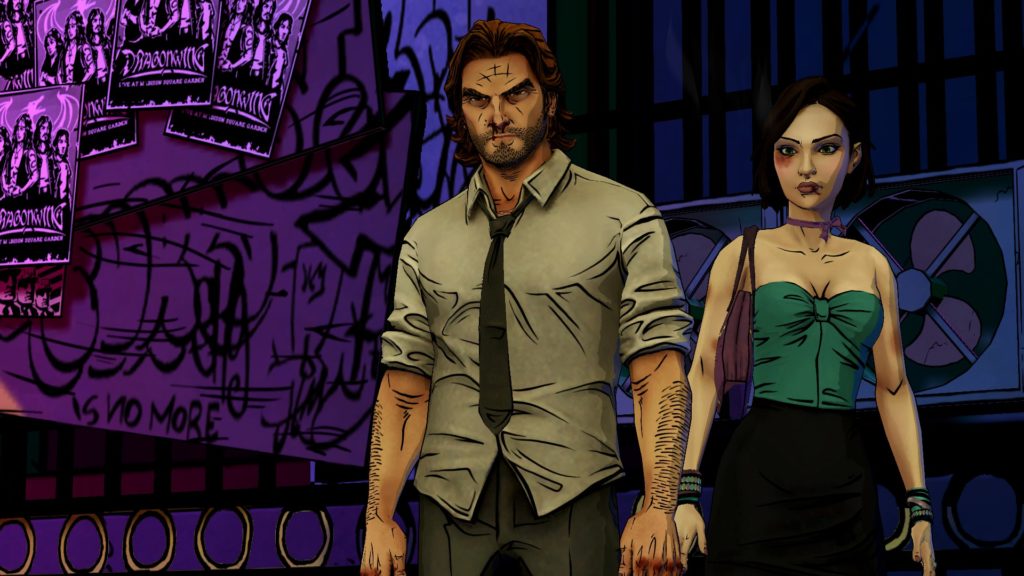
The Wolf Among UsChoice 4. Crunch or not crunch
Dialogues in Telltale games are always accompanied by an annoying timer. Players simply don’t have enough time to evaluate all the available replica options. So the time of the real Telltale was coming to an end.
Working on the same scenario over and over again affected the morale of the team. Short production cycles resulted in crunches. Because of them, the quality of games decreased, and they no longer satisfied studio managers. Those increasingly demanded to redo this or that game right before the release. At the same time, there was no question of postponements: license holders simply would not tolerate this.
In addition to the lack of time, there were difficulties with the native Telltale Tool studio engine. It was perfect for creating story games, but there was no adequate physics in it. Therefore, all the battle scenes had to be done manually.
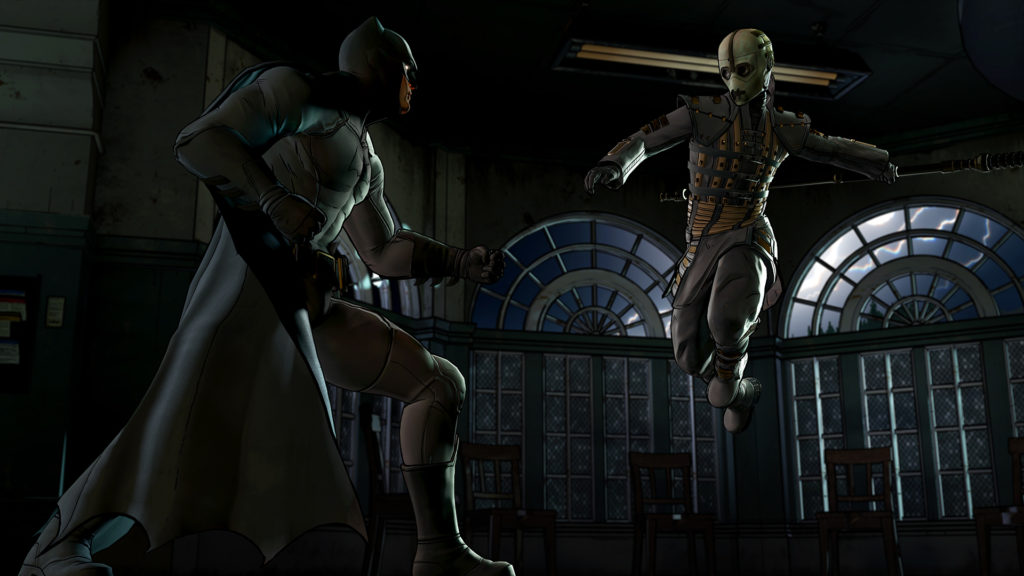
Batman: The Telltale Series
If not for the tight release schedule, the studio might have switched to Unreal Engine.
But the development had to go at a furious pace no matter what.
We talked a lot among ourselves about switching to Unreal. But such an option would have a bad effect on business. It was impossible to abandon the release of games for months and years until we switch to a new technology.
Former employee of Telltale Games
Since the studio managers could not or did not want to abandon the idea of in-line production, employees began to leave the company. This only increased competition from AAA titles such as God of War.
Alternative elections
And that’s when Telltale’s “dialog options” ran out.
Sales of her games were falling. Investors broke contracts one by one. In 2017, the studio laid off a quarter of its staff. In 2018 – already 90% of the remaining team. This latest mass dismissal was a real shock for the employee, since even a day before there were no notifications.
I was completely surprised by the closure of the studio. It was unthinkable for me. I do not know the details of what led to this decision and how it was made, but I cannot understand why people were not even given two weeks (to prepare for dismissal).
Former employee of Telltale Games
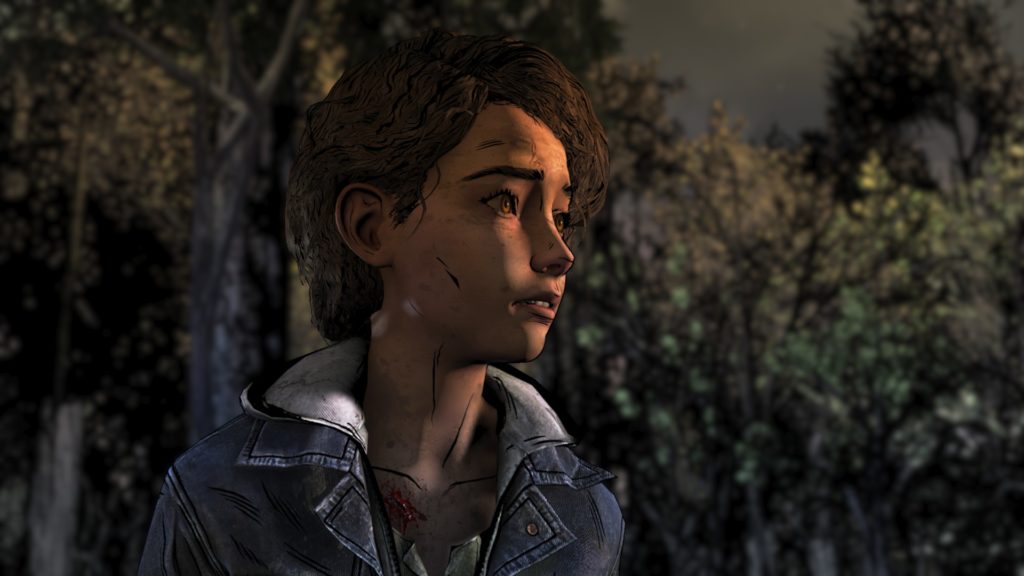
The Walking Dead: The Final Season
In the finale, Skybound Studio (the original license holder of The Walking Dead) took a handful of ex-Telltale developers and allowed them to finish The Walking Dead:
The Final Season.
Even though the studio has virtually disappeared, there is some higher justice in the fact that many others have adopted its ideas. But a number of questions arise: was there a different outcome for Telltale and how many more companies like it will suffer in the pursuit of profit? By the way, the story of Telltale echoes recent investigations about the situation in BioWare. There is also a lot of pressure on the staff in this studio.
It seems that all this leads to a natural unification of developers into trade unions. Although this idea is not new for a long time.
Also on the topic:
